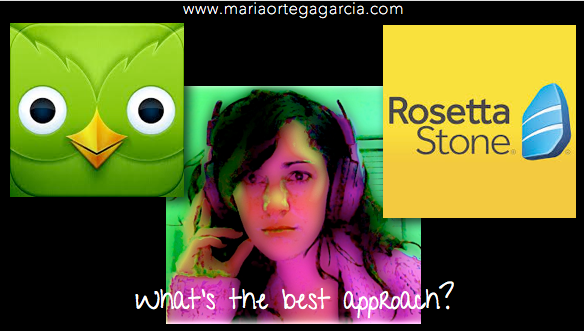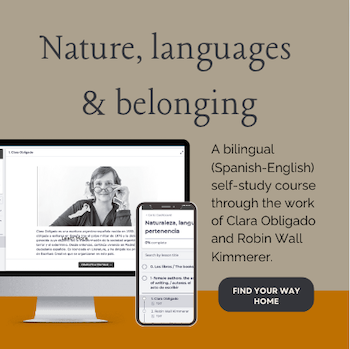Probably the majority of you, blog readers and language learners, already know, heard of, or even used one or both of the language learning platforms: Duolingo and Rosetta Stone.
The motivation of this post is personal experience and a recurrent flow of students coming to my arms, back to “traditional” learning methods in search of results.
I know both platforms and tried both. The software Rosetta Stone was probably the ,one I explored less time, mainly for the reason that I didn’t find much value. As a language teacher and independent learner I know that there are better ways of learning a language than learning words and sentences by heart.
Reagarding Duolingo I feel different because is free, entertaining and a great way of getting familiar with a language. However, after few weeks trying to learn German, I stopped and started to look for books and a regular teacher.
Here are the pros and cons about Duolingo for me:
- Pros:
– Is free.
– It’s catching because you can compete with friends and we all know how motivating is to beat our friends and acquaintances.
– It’s fun, I particularly loved the part when I got that first email telling me that the owl was sad and missed me, as a reminder to continue with the practice…
– It’s very interactive so it’s good to learn words and sentences.
- Cons:
– The pronunciation part is not great… sometimes I had to repeat the sentences because my pronunciation wasn’t correct…ahem, I mean, I was testing the Spanish training!
– It doesn’t give you many grammar explanations, which like it or not, is sadly necessary in order to understand how the language works.
– It doesn’t have any contexts and tasks.
– There is no communication or interaction whatsoever.

It’s all about independence.
To be able to reproduce a few sentences like a parrot doesn’t mean you are able to have a conversation.
These methods reminded me of the old school ways of learning languages. I even suffered myself at school where we learned all the grammar, to translate by writing and the speaking training consisted in learning conversations by heart… After all my school years learning English that way I went to England for a month and I wasn’t able to articulate a sentence, but mind you, I knew the list of all irregular verbs perfectly and could write very good essays…
In real life there is no script one can follow. So, what’s the point of learning by heart whole dialogues about the weather, the hobbies, work, cooking… whatever, if, in real life you won’t likely have the opportunity of sneaking in those sentences?
An evolution of methods and approaches
By old school methods I mean the audio lingual (created by the USA Army to teach English to the non english speakers in WWII) and the audio-visual (created in the 60’s). Both methods work but to a certain extent: They require more time for the student to deduct the grammar rules behind the sentences and therefore the results, unless you spend hours and hours every day for a long period of time, will take longer, if they ever manifest at all… because if you have never learnt a second language as a foreign language previously, or didn’t learnt grammar at school, you won’t have the background, previous experience and structures necessaries to deduct them.
There is no magic method to learn a language. All require effort and constancy. All require real interaction, with either a native teacher (looking after number one… 😉 ), a native friend or a visit to the country of the language you aim to learn. The more real the situation, the better.
I don’t know if the communicative and task based approach are the best ones but they are the ones that works for me and for my students. I have received few new students lately that started learning Spanish with Duolingo and Rosetta Stone and had a good amount of vocabulary but weren’t able to speak, which is the goal of the majority of the language learners: communicate and being able to react in certain situations. They highlighted the fact that they felt they hadn’t got much results, they knew words but they didn’t know what to do with them, how to make sentences on their own…
I hate to say that, but sometimes a little grammar “pain” can help you a lot in the long run. If you understand how the structure of a sentence works, you will be able to make sentences yourself when needed, and you will learn the words as you need them. A 3 minutes explanation and few examples are all what the aforementioned grammar ordeal is. Besides, in a regular class based in the communicative and task based approach, it’s about talking, expressing your immediate needs and solve real life task in the target language. It’s not about learning sentences without a context but learning how to make yourself understood and understand others in a conversation or interaction.
It’s about communication not repetition.


